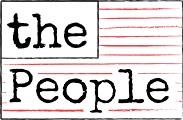Civics U: Progress
“Progress” is commonly taken to mean improvement and forward movement toward a desired goal; it is thus seen as and assumed to be a good thing.
THE DRIVE FOR PROGRESS
In American history early colonists’ and settlers’ desire and drive for progress was necessitated by the need to organize ways to survive, and fed by the opportunity to use the new territory that they took and occupied. Subsequently their work involved the development, variously, of agriculture, inventions and tools, social and political systems, schools, transportation, industry, and various cultural enterprises. Continuing efforts to achieve progress brought the development of modern technology, national and multinational corporations and global relations, schools for all children, rapid international communications and travel, and then complex legal systems, modern high-tech medicine, and even space exploration and travel.
THE NATURE OF PROGRESS
These many developments have brought varied effects. On the positive side, for many people and communities they brought prosperity and health. In fact, one might say that many people experience unprecedented prosperity and opportunity as part of the modern world in America. But developments have also led to materialism and consumerism (not necessarily happiness), to the idea that bigger is better (whether cities or factories or farms), and pollution of water and air. Some years ago the city of Boulder, CO, assuming that growth was good, set a goal of 7% population growth annually. They soon discovered that 7% means doubling every ten years and that providing the housing, roads, waters and sewers, and schools needed for this growth was neither feasible nor desirable.
THE PRICE OF PROGRESS
Economic progress has also often involved the exploitation and oppression of certain people and groups as a means of producing wealth for those in social, legal, and economic control. Even today there is concern that our easy access to affordable goods is based on “cheap labor” in other parts of the world – and sometimes also in the United States. John H. Bodley, in his book Victims of Progress, 2 nd Ed., documented the often negative effects of “modernization” and “progress” on indigenous peoples around the world. One example is the rapid deterioration of dental health among Eskimo peoples that came with the “advantage” of access to store foods. The impacts are not only economic but are also cultural. This author recalls meeting Hopi tribal elders John and Mina Lanza in the 1960’s. As traditional leaders they opposed attempts to bring running water and electricity into their village. They certainly saw the convenience that these new technologies could bring. But they also knew that these developments would impact and weaken the traditional “Hopi Way” of life which they were committed to maintaining. The incursion into tribal lands by companies to extract natural resources continues to this
day. In Brazil, for example, mining companies are currently extracting gold in tribal areas in violation of federal law and over the protests of local residents and leaders. After years of dealing with the effects of colonial and neo-colonial governments and school systems, many indigenous peoples are focusing efforts on achieving cultural, linguistic, and religious preservation, maintenance, restoration, and revitalization. This was illustrated at a 2022 Northern Arizona University conference having the theme “Honoring Indigenous Languages and Cultures.” It featured presentations on efforts by native Australian Darug, Hawaiian, Sami, Malaysian Orang Asli, Maori, Hopi, Navajo, and other indigenous peoples to stabilize and revitalize their languages and cultures by developing culturally responsive curriculum in their schools.
WHICH WAY PROGRESS
There is some kind of cost, whether human or environmental, to any type of progress. Every development, every step and form of progress, whether building a building or a social movement, and any benefit it produces, requires the use of human capital, land, space, material resources, and/or time. And sometimes progress takes the form of opposing and blocking negative developments and effects. Yet, progress should be good. It should be beneficial, but its various costs and impacts need to be weighed. The completion of an environmental impacts statement (EIS) is required before beginning certain activities. In many instances completing a total EIS, including a social and cultural impact study, before proceeding, would be wise.
Lynn Huenemann
lhuenemann@q.com

